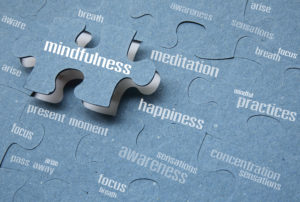It is quite usual in our society for the mother to be the primary caregiver to a newborn baby, toddlers and kids. That is not to say that fathers are absent, but the stereotype of Super Mom has been created by a general tendency to place fathers in the workforce and mothers in the home. In 2022, the US Census Bureau reported that 1 in 4 children in the US grow up without a biological, step, or adoptive father in the home– that amounts to 18.4 Million children!

The National Fatherhood Initiative reports several negative effects associated with paternal absence in the home, some of which include:
- 4x greater risk of poverty for the family
- Children are more likely to have behavioral problems, which may lead to them dropping out of school, teen pregnancies, imprisonment, drug and alcohol abuse, commiting crimes etc.
- Greater chances of facing emotional neglect and abuse.
On the other hand, a father’s active and involved presence in the home can mean a strong foundation for the well-being of the children, including some of the following advantages:
- Lower rates of injuries, emotional and behavioral problems, and obesity
- The chances of low birth weight and infant mortality significantly decrease as well
- School performance is increased
In 2017, King’s College London and Oxford University Researchers found that actively involved fathers, and especially those who contribute in their childs’ life in the first few months, are providing significant developmental advantages to their children. Involved fathers positively impact their children’s cognitive functioning, improve breastfeeding rates, and even help preterm infants gain healthy weight. High levels of father involvement correlate with higher levels of social confidence, good social skills, self-control, and overall boosted emotional well-being. Such as the negative effects of fatherly absence persist into adulthood, so do the positive effects of fatherly involvement: the presence of both parents leads to adult children who are more emotionally mature, and better equipped to make mature and wise decisions in their teenage and young adult years.
It is important to remember that it is the quality and not the quantity of paternal involvement that can have a great effect on children’s lives: non-resident fathers can still have a great impact on the psychological and mental well being of their children, as well as on their academic achievements and behavioral adjustments. Children with actively involved fathers are more likely to perform better in school, and to follow through with their college and graduate education. Even more specifically, father involvement shows reduced risk for behavioral problems and delinquency in boys, and reduced risk of psychological problems and rates of depression in young women.
https://www.all4kids.org/news/blog/a-fathers-impact-on-child-development/
https://www.fatherhood.org/father-absence-statistic
More
By Iris Farrou
08 Dec, 2022
Lifestyle Tips, Mental Health, New Moms, Parenting, Pregnancy, Queer Health, WNY Ob-Gyn News, Your baby's health
Baby's First, Chanukah, Children, Christmas, family time, Hanukkah, Holiday, holiday stress, Holidays with a Newborn, Kwanza, Mental Health, Newborn, Young Children
 It is widely known that holidays are one of the most stressful times of the year– though toddlers and children seem to enjoy them, and there is a certain magic that comes with it all, we should remember this comes at the expense of parents, and especially mothers. Holiday stress increases if you have just welcomed a new member in your family, and are trying to juggle a newborn baby and holiday traditions. There is no simpler way to put it than: focus on you and your baby. As a new mother, this is honestly the only thing you should be worried about; keeping yourself and your baby healthy and safe. However, reality is not always ideal. Here are some tips that may help lessen the holiday stress if you are facing such an incredible combination:
It is widely known that holidays are one of the most stressful times of the year– though toddlers and children seem to enjoy them, and there is a certain magic that comes with it all, we should remember this comes at the expense of parents, and especially mothers. Holiday stress increases if you have just welcomed a new member in your family, and are trying to juggle a newborn baby and holiday traditions. There is no simpler way to put it than: focus on you and your baby. As a new mother, this is honestly the only thing you should be worried about; keeping yourself and your baby healthy and safe. However, reality is not always ideal. Here are some tips that may help lessen the holiday stress if you are facing such an incredible combination:
- Change your expectations: you already knew your life would drastically change with a newborn, and if this happened into the holiday season there is no reason why this would be any different. We are creatures of habit and there is something comforting in having a decorated house, attending family gatherings, consuming holiday food, and participating in festivities. However, letting go of traditional expectations with a newborn during the holidays can significantly lessen your stress, and help you get through the season in a calm, and happy, manner. Nobody expects you to be the perfect hostess, or even guest, if you have just given birth– and you should not be expecting that of yourself either. Meals can wait, Christmas trees can become a simple wreath or a premade tree, but your baby’s first few weeks will not come back: savor that time with your family, and all else will come in due time.
- Simplify your days: to-do lists and preparations often become hectic around the holidays (more so than usual!). Remember, however, that this is not the time to go all out on Christmas decorations, gifts, meals, or anything else. If you feel like you have the energy for some of it, or if leaning into the holiday spirit will help you to feel less stressed, be selective with what you choose to put on your plate. Perhaps a short visit to the Christmas market this year is more manageable than standing long hours at the mall to see Santa– it may be more enjoyable, and leave you with some energy for the rest of the day. Or, you can have a family gift craft session at home instead of going out at all.
- Ask for help: isn’t helping others part of the holiday spirit? Why not take advantage of that now more than ever, and lean into your close family and friends to assist you in holiday activities, bring the festivities into your home or in a chill space, and help take care of you and your newborn? Select people you trust, set boundaries on how much or how little you can handle, and shape up those days in a design you can easily manage. Delegating responsibilities during this time is the best gift you can give to yourself, and you would be surprised how many people will be happy to offer their assistance in practical ways!
There are ways to embrace the holiday spirit and experience the magic of the festive season that don’t have to exhaust you; if you and your newborn are healthy and feel like you can manage a balance between traditional holiday activities and new ideas or reconfigurations, experiencing the magic in small ways will be extremely rewarding!
https://theeverymom.com/family-traditions-creative-new-ideas/
https://healthblog.uofmhealth.org/childrens-health/could-holiday-stress-be-affecting-your-childs-holiday-joy
More
By Iris Farrou
01 Nov, 2022
Diet & Exercise, Health Conditions and Pregnancy, Heart health, Lifestyle Tips, Mental Health, Nutrition, Pregnancy, Reproductive health, Women's Health
Anorexia and Pregnancy, Eating Disorders and Pregnancy, healthy eating, How to Eat While Pregnant, Hypertension, Mental Health Disorders During Pregnancy, Pregnancy Nutrition

The two most common types of eating disorders are anorexia nervosa and bulimia nervosa, yet there are other types out there that are not as common. Unfortunately, research on eating disorders and pregnancy is quite limited– there are estimations that eating disorders affect 5-8% of women during pregnancy, but this may not be completely credible as results can be skewed due to women’s reluctance to recognize eating disorders. Anorexia and bulimia often become noticeable in adolescence, and it’s possible that they linger during a woman’s reproductive years. Consequently, they can of course affect not only a woman’s reproductive health but also the health of her baby.
Fertility is the first affected area of women who suffer from an eating disorder: most women with anorexia do not have menstrual cycles, and approximately half of the women who have bulimia do not experience regular menstrual cycles. Absence of menstruation or irregular periods can limit the chances of conceiving, or even make it a lot more difficult for a couple to conceive. If you know you have an eating disorder and are seeking to get pregnant, it will be much healthier for you and your future baby if you try to treat your eating disorder first and establish some healthy eating habits. It is also important to share your history with medical professionals and ask for your weighing to be treated with more care.
Though there is quite a long list of complications associated with eating disorders during pregnancy, rest assured that proper planning and prenatal care– as well as a commitment to building healthy eating habits and helping your body remain healthy– can minimize a lot of those complications, lessen the risks associated with them, and enhance your chances for a healthy pregnancy. Some of those complications can be premature labor and low birth weight, as well as delayed fetal growth and respiratory problems. You may also be at a higher risk for emergency cesarean birth and other complications during labor. Gestational diabetes, preeclampsia, and even miscarriage are also possible complications. Women with eating disorders are also at a higher risk for postpartum depression, and depression during pregnancy, and are more likely to have problems with breastfeeding. Women with bulimia are at a higher risk for hypertension, and substances such as laxatives and other medications may be harmful to the development of the baby and can lead to fetal abnormalities as well.
Eating disorders unfortunately cannot be treated with medications that are pregnancy-safe. Treatment includes, first and foremost, the mother’s determination to have a healthy pregnancy and–difficult and shameful as it may be–disclosing to health professionals that you are struggling with an eating disorder. That way, your doctor will be able to tailor your prenatal visits accordingly, and know the risk factors associated with your pregnancy. The obstetrician’s care can be complemented by a registered dietitian/nutritionist and a therapist for well rounded care and medical treatment.
https://americanpregnancy.org/healthy-pregnancy/pregnancy-health-wellness/eating-disorders-and-pregnancy/
https://www.verywellmind.com/pregnancy-and-eating-disorders-4179037
More
By Iris Farrou
07 Sep, 2022
Diet & Exercise, Health Conditions and Pregnancy, Heart health, Lifestyle Tips, Mental Health, Parenting, Postpartum, Pregnancy, Prevention, Queer Health, Reproductive health, Women's Health
Body Changes in Pregnancy, body positive, Body Positivity During Pregnancy, Body Positivity While Pregnant, Eating Disorders and Pregnancy, Healthy Lifestyle, Healthy weight gain pregancy, How much weight should I gain in pregnancy, How to manage weight during pregnancy, how to prepare body for pregnancy, Weight Gain Support
If you have armed yourself with all the knowledge you can gather regarding the possible changes
on your body during pregnancy, then you are one step closer to dealing with the physical effect
of those changes. Some women, though they do know their body will change during pregnancy
and possibly afterwards as well, do not seem to mind it at all. Great! According to a survey of
more than 1500 women, just over 41% said they felt more negative about their bodies after
pregnancy. Which goes to show: the majority of women are struggling with body image while
pregnant. Not to mention what the body image stress is probably not helping the baby…

Is this only related to pregnancy?
Of course not… women in general are held to unrealistic expectations of beauty standards—expectations that the media and society constantly repeat. In recent years, this pressure for body perfection has worsened with the rise of social media. What is worse in pregnancy, however, is that the changes are relatively rapid, weight gain is almost always expected, feelings are exacerbated, and you may even be feeling alien in your own body. A vessel, so to speak. All of these are true: you will most likely gain weight during your pregnancy, it’s possible to develop stretch marks, and it is also a possibility that your post-partum body will not be 100% the same as your pre-pregnancy body.
This is a lot…
Yes, this can absolutely be overwhelming. Despair not! Weight gain is—and we cannot stress this enough—normal, and healthy for your baby. Also, if your doctor or nurse gives you the green light, you can exercise while pregnant. It may be light exercise, such as swimming or walking, or pre-natal yoga. These options help make you more aware of the connection between your body and your mind, perhaps take some of the edge off and your mind off of your worries and are steps to ensure the overall health of your body.
If you are concerned about weight gain during pregnancy, make a plan with your doctor, nurse, or mid wife, about your diet. Allow yourself the small pleasures without guilt: your body is participating in the miracle of nourishing a new life. There is no way to make this happen in a healthy manner unless you experience changes yourself.
What else can I do?
Honestly, don’t bottle up your feelings. Being insecure about, or even disappointed with, your
body image is completely normal. Share those feelings and thoughts with your partner, talk about
those worries with your friends. You may want to join a mom group, or even an online
discussion forum where you can exchange ideas with others on the same boat. If it gets too
much, you can always talk to a medical professional or a therapist. Even if you didn’t have body
image issues before pregnancy, it is not uncommon that future mothers start facing those worries
for the first time when they become pregnant. You are not alone in this!
More
By Iris Farrou
07 Sep, 2022
Breast health, Breastfeeding support, Health Conditions and Pregnancy, Lifestyle Tips, Mental Health, New Moms, Prevention, Procedures, Queer Health, Reproductive health, Women's Health, Young adults & teens
BRCA Gene, Breast cancer prevention, Breast cancer screening, Breast Exam, Breast Exam Buffalo NY, Breast Exams at Home, Buffalo NY, Buffalo OB-GYN, Cancer in women, Healthy Lifestyle, Self-Exam, Self-Examination, women's health tips
It is common practice at your regular OBGYN appointment for your doctor to perform a breast
exam, by using their hands and examining the overall the look of your breasts. Though this is no
substitute for a mammogram, which adult women are advised to have done yearly, it is a useful
method to see whether there are any visible or tactile abnormalities on your breasts. In fact, 40%
of breast cancers were diagnosed because women noticed something unusual about their breasts.

Is this something I can do at home?
Absolutely—and it is a good idea to perform a self-breast examination once every month. Consider it a monthly inspection you deserve, and one that at the very least helps you learn your body better. Using your eyes and hands for this examination, you can develop your own breast awareness and be able to immediately identify changes—should there be any, fingers crossed not!
What do I do?
First and foremost, it is important to choose a time of the month when your breast will not be as tender since this can cloud the results of the inspection. Ideally, during a time when you are not menstruating or ovulating. Secondly, remember you can (and probably should) ask your doctor or nurse practitioner for a demonstration on how to do this at home.
The most effective technique is to start with a visual examination of your breasts. Stand shirtless and braless in front of the mirror, with no-shadow casting light if possible, and place your hands at your sides. Look for any changes in size, shape, possible asymmetry, dimpling, or puckering. Check to see if your nipples are inverted. Then, inspect your breasts in a similar manner but after raising your hands above your head, palms pressed together forming an A shape. You can also lift your breasts and inspect whether the ridges on the bottom are symmetrical. Should you not trust your own vision, or if you have a visual impairment, it’s a good idea to ask a partner, trusted family member or friend, to help you with this.
Is this all?
The visual inspection is the first step. Next, you want to use the pads of your three middle
fingers. If you can’t sense very well with the pads of your fingers you can use your palm or the
backs of your fingers. You can do the tactile inspection in the shower or lying down (that way,
the breast tissue spreads and it’s easier to feel).
Now, take your time, don’t rush, and establish a routine for this part. If you do it clockwise every
time, for example, and in the same order, then after a few times you will be better able to judge
any changes in the pattern of your breasts. The goal here is to feel the depths of the breast using
different levels of pressure—so you can go over the whole tissue. Closest to the skin, use light
pressure. As you go try to feel a little deeper, use medium pressure. Closest to the chest and ribs,
use firmer pressure.
Remember that you are not looking for anything in particular, you are just learning the patterns
of your breasts. So, take deep breaths, take your time, remind yourself this is being done
absolutely for preventative reasons—just like flossing!
More
By Iris Farrou
05 Aug, 2022
Geriatric Mental Health, Lifestyle Tips, Mental Health, Prevention, Uncategorized, Women's Health
aging parents, Depression, Depression symptoms, Elderly, Geriatric, isolation, Loneliness, Mental Health, Socialization

Our physical and mental health is directly connected to regular, healthy, and enjoyable
socialization with friends and family, colleagues, people who share our hobbies and interests…
With COVID-19 severely affecting our socialization levels, many found themselves with
increased loneliness, anxiety, and depression—thus bringing down their immune system and
overall physical health. However, it is a harsh truth that elders suffered from isolating and social
distancing extremely more than younger people.
Unfortunately, elder isolation and loneliness is not solely a COVID-related phenomenon. A
study by UCSF found that more than 40% of seniors regularly experience loneliness. The same
study also drew direct connections between loneliness, serious health issues, and death among
the elderly population. One can only imagine how much worse this got during COVID isolation.
Health Issues
Individuals with low social interaction levels are more likely to suffer from anxiety and
depression, and experts have found direct links between loneliness and suicide. Senior
individuals with limited social lives have also been found to suffer from worsened dementia and
Alzheimer’s disease—or rapid progression compared to elders with a rich social life—coronary
artery disease, heart failure, and increased risk of stroke.
Benefits of Socialization
The good news is that socializing helps combat most, if not all, of the health issues loneliness
creates. A social life can benefit elders because it:
- Increases mental awareness: when we interact with others, we remain connected to the
outside world and keep our cognitive abilities sharpened. After all, the brain is a muscle.
- Fights anxiety and depression: though these may be chronic conditions, socializing helps
keep anxiety and depression at bay—especially if both are related to ageing. At the very
least, it proves that others care and helps build a community.
- Support system: elder socialization reminds us there is a community of same-aged
people, as well as friends and family, who are present for emotional and physical help.
- Physical discomfort relief: though physical pain can be very sharp, socialization provides
a break from a lonely routine, gets us going, and takes our mind off of aches—even for a
little while.
Overall, elder socialization not only creates a healthier quality of life and has the potential to
extend life. With technology seniors can be closer to their loved ones much more easily: daily
use of social media, adopting a pet for companionship, utilizing companion services, trying to
enjoy meals socially, participating in local activities (if possible) and ensuring reliable
transportation are just some of the ways that eliminate elder social isolation.
More
By Iris Farrou
21 Dec, 2021
Mental Health
Best gyns in Buffalo, Best OB practices in Buffalo, Best OBGYN Groups in Buffalo, Buffalo OB-GYN, Buffalo OBGYN, Chouchani MD, Healthy holiday tips, holiday stress, WNY OB-GYN, WNY Ob-gyn doctors, WNY OBGYN, women's health

The holidays can be a relaxing and socializing time, but they can also be a time of holiday stress. Experts give us some tips on how to maintain healthy stress levels during this holiday season while keeping COVID safe and being mindful of our body’s health.
COVID Safety
As vaccination rates increase, you can likely choose if you are spending the holidays with vaccinated, COVID-safe individuals. Regardless, you should wash your hands often to prevent the spread of germs. Similarly, you should stay warm and bundled up to not jeopardize your immune system. You may let a little loose during the holidays, but remember smoking causes health risks. Last but not least, monitor children’s activity to see they are keeping safe and having a good time.
Body Health
Holiday living isn’t always friendly to healthy living, especially when it comes to diets and routines.
Here are some easy diet tips to practice this holiday season:
- Find healthy alternatives to your favorite dishes or substitute ingredients with their healthier counterparts. For example, use yogurt instead of mayonnaise, and bake instead of frying.
- Exercise moderation. No need to push your body past its limits when it comes to food and desserts. Keep your portions smaller if you want to extend your mealtime, or if you have several meals planned throughout the day. Avoid foods that upset you.
- Homemade foods instead of processed foods are a better idea. Canned, processed, and premade foods are full of salt and sugar that homemade foods usually don’t have.
- Adding more vegetables to traditional dishes or using vegetable-based recipes as side dishes is an easy way to eat your greens while enjoying holiday meals!
- Taking a walk after mealtimes can help your body digest. Research suggests it is best to take a walk directly after a meal to assist your digestion—and even get some alone time.
Managing Stress
The holiday season can come with heightened stress, or even depression. The demands are higher, financial stress is at play, and with guests around you may not get a moment to yourself. You may also be spending the holidays alone when you would like to have company or have recently lost a loved one.
Here are some tips to handle holiday-related stress:
- Acknowledge your feelings and express them. If you can’t talk to someone, you can write them down. Whether your feelings are positive or negative, it is important to not keep them bottled up.
- Reach out to friends, family, or the community. If you are feeling isolated and lonely or cannot (or don’t want to) reach out to friends and family, community events during the holiday season are an easy way to get some low-stakes socialization. Plenty of community programs organize more events around the holidays, and volunteering or participating is easy.
- Plan ahead and keep your habits, as sticking to a routine or a schedule you are familiar with can help minimize stress. Take agency over holiday plans and keep your limits.
Overall, remember to prioritize the things that make you happy! Avoiding over committing to events that cause stress or are more of an obligation. Spend the time with the people you love doing things you enjoy.
More
By Iris Farrou
08 Apr, 2021
Lifestyle Tips, Mental Health
Best gyns in Buffalo, Best OB practices in Buffalo, Best OBGYN Groups in Buffalo, birth control, Buffalo OB-GYN, Buffalo OBGYN, Chouchani MD, mental health tips, WNY OB-GYN, WNY Ob-gyn doctors, WNY OBGYN, women's health
The conversation around the side effects of hormonal birth control and contraceptive pills on mental health has been around for a while: you may have heard women recounting their negative experiences with heightened depression symptoms, or mood swings, when switching contraceptive methods. Though personal experiences are not medical research, they do warrant attention.
In 2016 a Danish study of more than 1 million women, which focused on analyzing nationwide health records, showed that women using hormonal birth control were more likely to be treated for depression. On the other side, studies conducted in the US and Finland have showed that hormonal birth control users report less symptoms of anxiety and depression. Though just what effect hormonal birth control can have on mental health differs, one thing is for sure: it does affect it.
Hormones and Mental Health
Though there are no mental health risks directly associated with the use of contraception, we do know hormones—and hormone imbalances—can have an impact on mental health. To start with, women are twice as likely as men to suffer from depression: this is a difference that starts in adolescence due to the changing levels of estrogen.
During the follicular phase, which is the time between the start of a period and ovulation, estrogen levels are high. However, individuals with depression demonstrate lower levels of estrogen at that time. Hormonal birth control is likely to affect the natural levels of hormones in someone’s body, and therefore cause mental health changes.
Types of Hormonal Contraception and their Effects
Implant
There are two types of implants: one containing the progestin etonogestrel and another containing the progestin levonorgestrel. Results of the Danish study concluded that use of the etonogestrel implant led to higher use of antidepressants, especially for teens. People using that for two years have also reported mood swings and depression attributed to the implant. The risk for depression seems to heighten with the etonogestrel implant, but studies remain somewhat inconclusive.
Hormonal IUD
The Danish study on hormonal IUD showed that adolescent IUD users were more likely to be treated for depression than adult IUD users. However, a Finnish study suggested that women using this method were just as likely to showcase symptoms of anxiety and depression as women who were not using it. Like the implant, there is some evidence that IUD increases chances of depression but no direct conclusion.
Pills
Combined Oral Contraceptives (COCc) contain both synthetic estrogen and progestin. Though the Danish study found that users of COCs aged 16-31 were more likely to be prescribed an antidepressant, several other studies have shown that birth control users are not more likely to have symptoms of depression. However, people using COCs for reasons other than birth control have been found more likely to have depression.
There are several other hormonal contraceptive methods that can potentially affect mental health, but the three examined above are the most commonly used. Results may remain inconclusive, but if you are taking a hormonal contraceptive method and you experience unusual symptoms, you may consider consulting your doctor or healthcare provider.
More

Body image issues are pervasive in today’s society. Approximately 91% of women are unhappy with their bodies, while only 5% of women naturally have the supposedly “ideal” body type as portrayed in the media. A negative body image in young adults can lead to many adverse effects, such as anxiety, depression, and eating disorders.
It is especially important to reach out to young adults regarding a healthy body image, as 95% of people with eating disorders are between the ages of 12 and 25. Additionally, it is crucial to keep in mind that body image issues do not only affect women and girls, despite common stereotypes. Research suggests that 10% of people treated for eating disorders are male.
In teenagers and young adults, there are many causes of body image issues. The list below, while certainly not exhaustive, contains some of the most common factors in the development of a negative body image.
- Natural weight gain and body changes due to puberty
- Peer pressure/negative friend group
- Cultural differences and expectations
- Unreasonable body image expectations from media images, celebrities, etc.
- Family members or trusted adults who are overly concerned with their own weight or appearance or their teen’s weight or appearance
- Exposure to material that sexualizes young people
In encouraging positive body image, the most important component is encouraging and open communication regarding changing bodies and outside influences. You can’t completely control the messages that young women are exposed to on a daily basis, but you can help them process and deconstruct these messages in a healthy manner.
Tips for encouraging positive body image in teens and young adults:
- Set a positive body image example: Young women look up to the trusted adults in their lives to model appropriate behavior and expectations. Be mindful of the language that you use regarding your own body and avoid criticizing others’ bodies.
- Communicate about puberty and body changes: Puberty is a confusing time for any teen to navigate, especially when dealing with seemingly random and rapid changes in their mental, emotional, and physical states. As a parent, teacher, or other trusted adult, you can help your teen deal with this difficult experience with open and honest communication regarding what to expect and how to process it, especially reassuring them that they are not alone and that what they are going through is completely normal.
- Encourage positive friendships: Help the young women in your life build an accepting and caring friend group. Teenagers are heavily influenced by their peers, so while you cannot (and should not) choose their friends for them, you can encourage them to gravitate towards people who share their values and goals.
- Foster healthy habits rather than a certain body type: Instead of focusing on a certain ideal weight or body size, encourage your teen to choose healthy foods that make them feel good and are also tasty.
- Discuss media and cultural messages: Encourage your teen to question messages from social media, the Internet, television, etc., especially regarding body pressures.
- Praise achievements: Compliment teenagers on their achievements, efforts, and skills, rather than appearance.
- Promote enjoyable physical activity: Help your teen to find enjoyable physical activities. Make exercise about fun and feeling good rather than achieving a certain body type.
More
 Stress is one of modern life’s biggest obstacles. While the amount of stress varies from person to person, day to day, and month to month, more than two-thirds of people feel stress on a daily basis. Dealing with stress can lead to issues at work, school, and home. Combating stress depends on trying practices, including exercise, diet, mindfulness, and relaxation, to find what combination of stress reduction techniques works for you.
Stress is one of modern life’s biggest obstacles. While the amount of stress varies from person to person, day to day, and month to month, more than two-thirds of people feel stress on a daily basis. Dealing with stress can lead to issues at work, school, and home. Combating stress depends on trying practices, including exercise, diet, mindfulness, and relaxation, to find what combination of stress reduction techniques works for you.
Ways to combat stress:
- Exercise: Yes, get moving! Moderate exercise, such as walking, cycling, vinyasa yoga, swimming, and jogging, are great activities to relieve mental stress. In addition to releasing endorphins that lead to enhanced moods, exercise lowers stress hormones, improves sleep, and leads to more confidence and a better wellbeing. Women should get 150 minutes of moderate exercise each week, which averages to 30 minutes five days a week. Mixing up the activities with yoga one day, swimming the next, and lunch-break walks will help keep it interesting.
- Diet: Certain foods, especially foods high in sugar, lead to the release of stress hormones from the adrenal glands. While the thought of dieting is enough to cause stress, rest assured, small practices can make a big impact on eating. The key is to avoid lofty eating plans and goals, and instead start small and aim for long-term changes. If you typically eat one or two servings of fruit and veggies each day, make a plan to double it. Work on building up to a goal of five servings of fruits and veggies daily. In addition, choose lean protein options (chicken, fish, beans) and avoid fatty foods, processed foods, and red meats. Working to lower sugar and caffeine intake will also help with stress reduction.
- Mindfulness: Learning to be in the moment and accept your current situation is another method to reduce stress. Practicing mindfulness means dedicating time to meditate. An easy way to start is by dedicating five minutes of quiet time to sit and think each day. During this time, listen to your breath, scan your body, find any discomfort (stress often manifests in pain or tension in the neck and shoulders), and let it go. Practicing mindfulness means moving your mind through examining, accepting, and dismissing both mental and physical feelings. For a guided mindfulness practices, look for meditation and/or gentle yoga, all of which can be found in phone apps, online videos, and in-person at local yoga studios.
- Relaxation: In addition to exercise, diet, and mindfulness, which can feel like work, simply look for ways to relax. This is different for everyone, but can include a hot bath, spending time in nature, using aromatherapy candles or oils, reading, getting a massage or pedicure, listening to music, and/or simply taking time to yourself.
More










